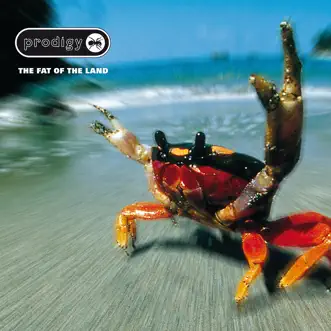Smack My Bitch Up by The Prodigy Song Info
"Smack My Bitch Up" was the twelfth single released by the British big beat band The Prodigy on November 17, 1997. It was the third and final single from the album The Fat of the Land. The song was highly controversial because its lyrics, title and music video were believed to promote using of heroin. The phrase "Smack my bitch up" translates to: "Request another to inject you with Heroin or get you high. The phrase does not mean to hit your girlfriend, nor does it advocate violence toward women as it literally implies. "Bitch" being slang for the main vein running down your arm in which heroin is usually injected. "Smack" is slang for the drug heroin. Put them together and you get "Smack my bitch up", in other words to inject heroin into your main vein in your arm. The lyrics "Change my pitch up / Smack my bitch up" are repeated through the whole song, as can be heard in the sample below. The band defended the song, saying that the lyrics were being misinterpreted as misogynistic and the song actually meant "...doing anything intensely..." The song led to a publicised disagreement at the 1998 Reading festival after the Beastie Boys asked the group not to play the track. The vocals are sampled and altered from the Ultramagnetic MCs song "Give the Drummer Some". The original lyrics, performed by rapper Kool Keith, are: "Switch up change my pitch up / Smack my bitch up like a pimp". Keith had previously been sampled by the Prodigy in the track "Out of Space". The female vocals in "Smack My Bitch Up" were performed by Shahin Badar. The track also contains samples from "Funky Man" by Kool & the Gang; "In Memory Of" by Randy Weston; "Bulls on Parade" by Rage Against the Machine; "House of Rising Funk" by Afrique and "Nana - The Dreaming" by Sheila Chandra Prior to the release of the single Liam Howlett was presented with three remixes of the title song, one by Jonny L, one by DJ Hype and one by Slacker. Eventually, Howlett chose the DJ Hype remix to be released on the single. The Jonny L remix was released through a free CD that came along with the January issue of Muzik magazine in 1998, while the Slacker remix was never officially released, although it surfaced on a rare and limited set of white labels. The song was banned by the BBC and only a lyric-free version was played on Radio 1. On the chart rundown, other tracks from the single release were played, and the title "Smack My Bitch Up" was not mentioned. On BBC World Service radio chart run down it was mentioned as "Smack" and was not played. Yet on the first episode of Top of the Pops in which it charted, the DJ Hype remix was played over the Top 10 countdown, including the offending lyric of "Change my pitch up, Smack my bitch up." Richard Cheese and Lounge Against the Machine covered this song on his 2000 album Lounge Against the Machine. This is the song where he introduces the whole band. The song appears in the 2000 film Charlie's Angels, however the song is not on the film's soundtrack. It also appears in the 2001 film Scary Movie 2, in the scene that spoofs the Charlie's Angels' scene that uses this song. The song "No Man Army" appears on the single and is a slightly different instrumental version of "One Man Army", a song which Howlett created together with guitarist Tom Morello from Rage Against the Machine and Audioslave for the soundtrack to the movie Spawn. The song is used in the Mike Nichols film Closer and the first episode of the BBC Three series Being Human. However, it is not included on the DVD release due to copyright issues. The promotional music video for "Smack My Bitch Up", directed by Swede Jonas Åkerlund depicts a night out in the city filmed from a first-person perspective, portraying drinking and driving, snorting cocaine, violence, vandalism, nudity and sex. The unedited version also includes a scene of heroin use and a hit and run incident. The protagonist takes a stripper (played by model Teresa May) home and has sex with her. As the stripper leaves with her stuff, the protagonist glances in the mirror, is revealed to be a woman, and passes out on the bed. The video drew fierce criticism for misogyny despite its ending, particularly from feminist groups such as the National Organization for Women, accusing it of encouraging violence against women. Others, however, praised the video because of the way it subverted politically correct stereotypes of domestic violence, showing that women are also abusers. Though universally banned from television, massive demands on MTV eventually had them relent and show the video, but only after midnight and following an MTV News warning. In mid-2002, the full unedited version of this video was aired on MTV2 as part of a special countdown showing the most controversial videos ever to air on MTV. This countdown was only shown late at night because of the graphic imagery of "Smack My Bitch Up" and several other videos on the countdown. This video was at #1 on the countdown and therefore named the "Most Controversial Video" in MTV's history. Programming blocks in the United States containing the unedited video for "Smack My Bitch Up" automatically gained a rating of TV-MA-SLV (previously TV-M-DSLV). Despite the controversy, the video would be nominated for four MTV Video Music Awards, and eventually win Best Dance Video and Breakthrough Video. In 2006 the full version of this video was aired and voted #1 on New Zealand television show 'U Choose 40', screened on music channel C4 as part of their 'Most Shocking Videos' and 'Top 10 - That's Shocking!' (June 10, 2007) countdowns and voted #2 as part of the 'Banned In The USA!' countdown on August 24, 2007. The controversy surrounding the single didn't prevent "Smack My Bitch Up" from being a massive worldwide hit. The song reached the top 15 in several countries, for example Canada, New Zealand, Norway and Sweden. The song performed best in Finland, securing The Prodigy their third Finnish number-one hit alongside Firestarter and Breathe. Although not reaching the top 20 in those countries, "Smack My Bitch Up" was a hit in the Netherlands peaking at #22, in Australia reaching #41, and in the United States reaching #89.



